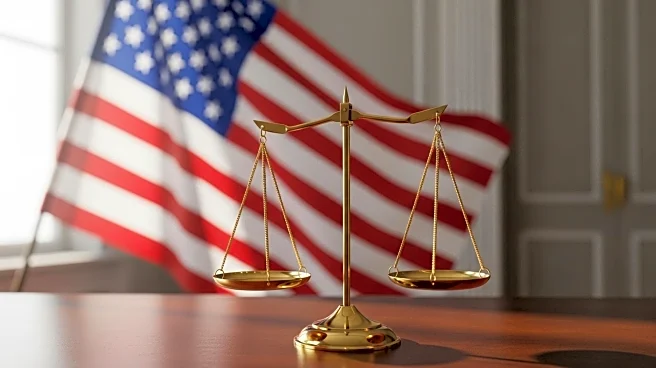What's Happening?
President Trump has signed two executive orders aimed at eliminating cashless bail in Washington DC and other jurisdictions. The orders direct localities to end their cashless bail programs, which allow individuals charged with crimes to be released without paying bail while awaiting trial. The orders also instruct Attorney General Pam Bondi to identify jurisdictions with cashless bail policies and revoke federal funds and grants to those areas. Trump argues that cashless bail contributes to violent crime, despite data showing no significant increase in crime rates in areas with such policies. The move is part of Trump's broader efforts to assert control over law enforcement in the capital and beyond.
Why It's Important?
The elimination of cashless bail could have significant implications for the criminal justice system, particularly affecting low-income individuals who may struggle to afford bail. Critics argue that cashless bail reforms have not led to increased crime and that the current system disproportionately impacts marginalized communities. Trump's executive orders may deepen inequities and strain local jurisdictions that rely on federal funding. The decision reflects ongoing debates about criminal justice reform and the balance between public safety and social equity.
What's Next?
The implementation of Trump's executive orders may face legal challenges from jurisdictions that support cashless bail policies. Advocacy groups like The Bail Project are likely to continue pushing for bail reform and highlighting the benefits of cashless bail systems. The orders may also prompt discussions among policymakers and community leaders about alternative approaches to pretrial detention that prioritize safety over wealth.










